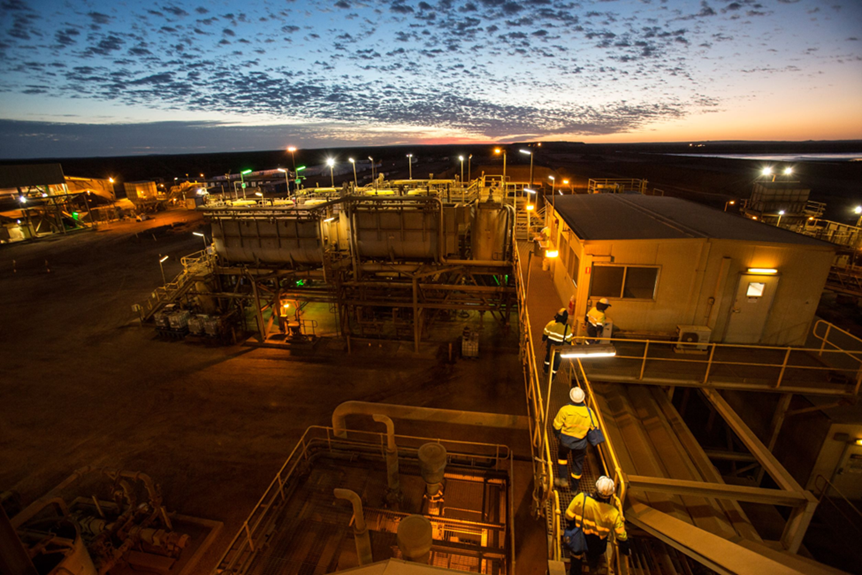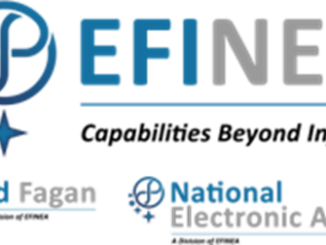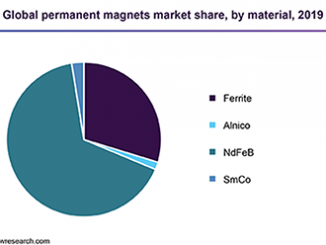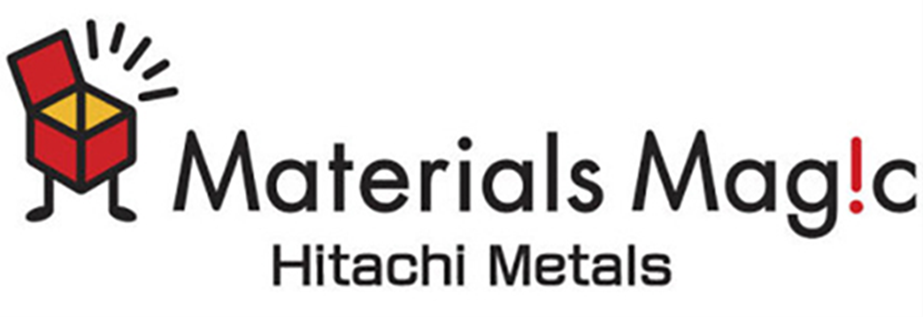
Boosted by a 28% jump in revenues from its business in magnetic materials, fortunes continue to rise at Hitachi Metals while awaiting closure of its acquisition by investment group Bain Capital. For its fiscal year ended March 31, the company posted overall revenues of $7.3 billion, a 23% improvement. The magnetics sector rose at a faster clip, bringing in revenues of $1.05 billion. A year ago, the company overall and its magnetics sector were both mired in red ink. Meanwhile, the transaction with Bain has encountered delays due to regulatory issues but apparently is still on course.
Sales of rare earth magnets and ferrite magnets rose as automobile manufacturers adjusted their production volumes upward, the company reported. Demand in its rare earth magnets business trended briskly upward, particularly for factory automation and robotics.
Among power electronics materials, soft magnetic materials and their applied products saw brisk demand for use in telecommunications applications such as smartphones, tablets and server equipment. Demand for amorphous metals for transformers also increased mainly in Asia. As a result, sales of soft magnetic materials, and their applied products increased. Sales of ceramic components also increased due to an increase in demand for use in automobiles as well as for server equipment and continued strength in demand for use in medical devices.
Earlier, the sale to Bain Capital was expected to proceed in November but then encountered regulatory delays over competition laws. Apparently, the companies are proceeding with the structure outlined in April 2021 when the proposed deal was announced. The Bain consortium, which includes two Japanese funds, planned to buy 53% of the company owned by Hitachi and 47% owned by others, capping a string of divestitures by Hitachi as it reorganizes its business.
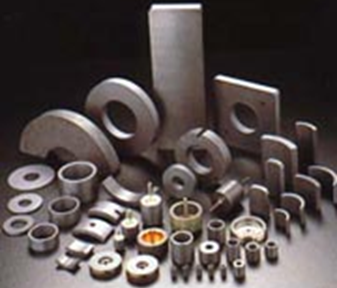
With a product portfolio that ranges from specialty alloys to magnets, magnetic materials and electronic components, Hitachi Metals has long been one of the world’s leading players in magnetic materials and high-end ferrite magnets with a strong research and development tradition and deep ties with industry customers. But the business fell in recent years, battered by Covid-19 fallout and certainly not helped by a scandal involving the manipulation of quality inspection data. Bain says that it hopes to support management in enhancing competitiveness, particularly in high-growth sectors such as vehicle electrification.

